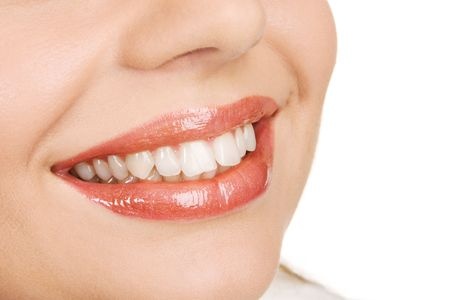Can Bad Teeth Make You Sick?

The Link Between Oral Health and Overall Health
Can bad teeth make you sick? The short answer—yes. You might be surprised at just how much your oral health affects your overall well-being! Your mouth isn’t just for eating and talking—it’s closely connected to the rest of your body. Keeping your teeth and gums healthy does more than give you a great smile; it helps keep you feeling your best from head to toe.
How Bad Teeth Can Make You Sick
We all know brushing and flossing prevent cavities and bad breath, but did you know that a healthy mouth can also help protect your heart, lungs, and even your pregnancy? There are many unexpected ways in which oral health impacts the body. Let’s break it down and explore some of the ways bad teeth can make you sick.
1. Heart Health and Oral Hygiene
Gum disease isn’t just a dental issue—
it’s been linked to heart disease. Bacteria from the mouth can enter the bloodstream, contributing to inflammation and plaque buildup in the arteries. This can increase the risk of heart attacks and strokes. Regular dental care isn’t just about your smile—it’s a step toward better heart health!
2. The Oral Health & Diabetes Connection
Diabetes and oral health go hand in hand.
People with diabetes are more likely to develop gum disease, and inflamed gums can make it harder to control blood sugar levels. If you have diabetes, maintaining good oral hygiene can help you better manage your condition and avoid complications.
3. Breathing Easy: Oral Health & Lung Function
Did you know that bacteria in your mouth can travel to your lungs?
Poor oral hygiene can contribute to respiratory infections like pneumonia and worsen conditions such as chronic obstructive pulmonary disease (COPD). Keeping your mouth clean may help you breathe a little easier!
4. Healthy Gums, Healthy Pregnancy
Pregnancy changes a lot—including your gums! Expecting mothers with gum disease have a
higher risk of preterm birth and low birth weight babies. Hormonal changes can make gums more sensitive, leading to inflammation and bleeding. Prioritizing oral care is an easy way to support a healthy pregnancy for both mom and baby.
5. Your Immune System and Oral Health
Your body works hard to fight off infections, but
poor oral health can make that job harder. When bacteria from the mouth enter the bloodstream, they can trigger inflammation throughout the body, weakening the immune system and making you more susceptible to illness. By keeping your teeth and gums healthy, you give your immune system the support it needs to protect you.
Simple Steps to Take Charge of Your Oral Health
With so many connections between oral health and overall wellness, it’s clear that taking care of your teeth is about more than just fresh breath. The good news? It’s never too late to improve your oral hygiene routine and reduce the risk of these health concerns. Here’s what you can do to protect your smile and your body:
1. Stick to a Consistent Oral Care Routine
Brushing and flossing aren’t just good habits—they’re essential for preventing plaque buildup and keeping harmful bacteria in check. Make sure you:
- Brush twice a day with fluoride toothpaste.
- Floss daily to remove plaque from between teeth.
- Use an antibacterial mouthwash to kill lingering germs.
2. Schedule Regular Dental Visits
Even with the best at-home care, professional cleanings and checkups are a must. Dentists can catch issues early and provide treatments that prevent bigger problems down the road. If it’s been a while since your last visit, now’s the time to
book an appointment.
3. Eat a Tooth-Friendly Diet
Your diet plays a big role in your oral health. Limit sugary foods and drinks, which feed bacteria and lead to cavities. Instead, choose foods that strengthen teeth and gums, such as:
- Crunchy fruits and vegetables (like apples and carrots)
- Products rich in calcium (like cheese and yogurt)
- Nuts and seeds, which contain healthy fats that support gum health
4. Stay Hydrated
Drinking plenty of water helps wash away food particles and bacteria, keeping your mouth clean between brushes. Water also stimulates saliva production, which is your body’s natural defense against cavities and gum disease.
5. Quit Smoking and Manage Stress
Smoking and tobacco use are major risk factors for gum disease, tooth loss, and even oral cancer. Managing stress is just as important—stress can lead to teeth grinding (bruxism), which wears down enamel and causes jaw pain. Consider relaxation techniques like meditation or exercise to protect your teeth and gums.
The Takeaway
A healthy mouth is a big part of a healthy body! If it’s been a while since your last dental visit, now’s the perfect time to get back on track. Taking care of your teeth isn’t just about your smile—it’s about taking care of yourself. At Tedford Family Dentistry, we’re here to help you every step of the way. Whether you’re due for a cleaning or have concerns about your oral health, we’ve got you covered. From preventive visits to cosmetic services to pediatrics and more, our team is here to keep your smile healthy and looking its best.
Schedule an appointment today and keep your whole body feeling great!
Call now to schedule: (423) 238-8887
Click here to book your appointment online

 When you suffer from sensitive teeth, brushing, flossing, eating and drinking can all cause temporary discomfort. Most people with sensitive teeth experience a sharp, sudden pain that can cause pain deep into the nerve endings of the teeth. Worn enamel and exposed dentin and tooth roots are all factors contributing to sensitive teeth. In many cases the sensitivity is due to wear and tear, decay, gum disease, tooth grinding, whitening products, acidic foods and recent dental work.
When you suffer from sensitive teeth, brushing, flossing, eating and drinking can all cause temporary discomfort. Most people with sensitive teeth experience a sharp, sudden pain that can cause pain deep into the nerve endings of the teeth. Worn enamel and exposed dentin and tooth roots are all factors contributing to sensitive teeth. In many cases the sensitivity is due to wear and tear, decay, gum disease, tooth grinding, whitening products, acidic foods and recent dental work.  Tis’ the season for New Year’s resolutions. Make a vow to improve your oral hygiene and keep your smile bright and healthy. Not to mention that proper dental care can impact your overall health and appearance. Here are a few resolutions to improving your oral hygiene.
Tis’ the season for New Year’s resolutions. Make a vow to improve your oral hygiene and keep your smile bright and healthy. Not to mention that proper dental care can impact your overall health and appearance. Here are a few resolutions to improving your oral hygiene.  Age, health conditions and other factors can all put seniors at risk for a number of oral health issues. Oral health is an important component of overall health and well-being, but can often be overlooked. There are several conditions that are commonly found in senior patients:
Age, health conditions and other factors can all put seniors at risk for a number of oral health issues. Oral health is an important component of overall health and well-being, but can often be overlooked. There are several conditions that are commonly found in senior patients: